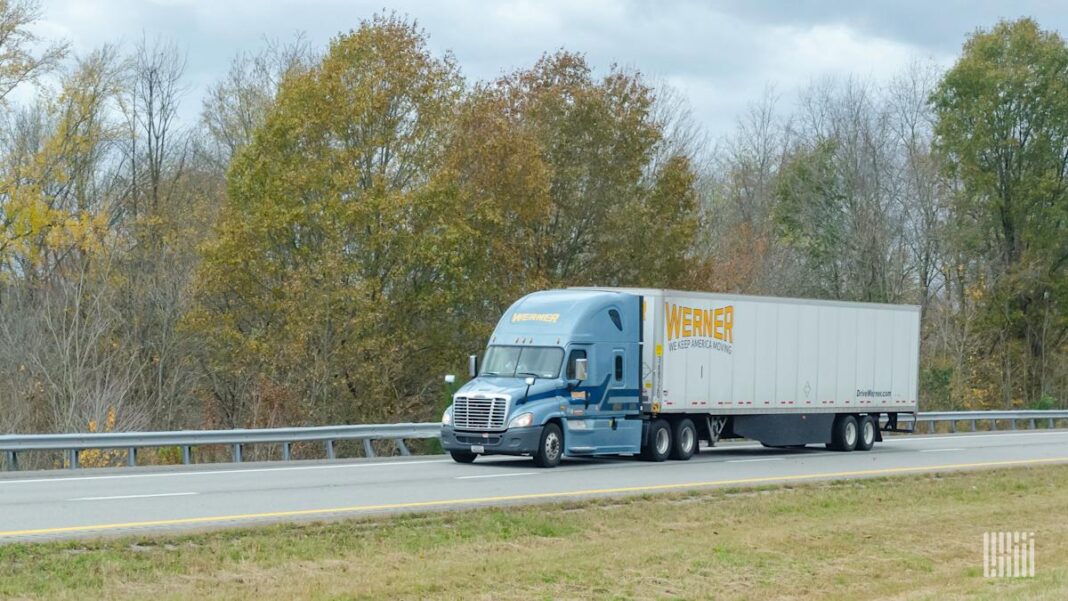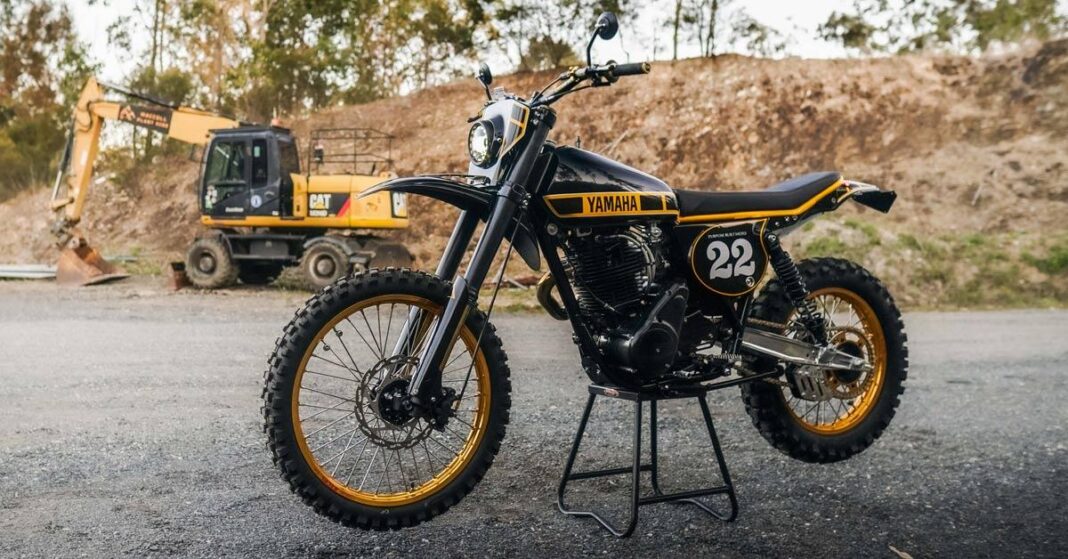Werner Enterprises CEO Derek Leathers told analysts Thursday that ongoing enforcement actions and capacity exits could set the stage for a “more balanced” freight market heading into 2026.
On Thursday, the Omaha-based truckload carrier (NASDAQ: WERN) posted a $20.6 million third-quarter loss amid a difficult freight environment and legal settlement costs.
“We’re entering peak season with healthy consumer demand and strong retail alignment,” Leathers said. “Enforcement on multiple fronts is leading to ongoing capacity attrition, and the tariff-related noise seems to be settling in. The ongoing structural improvements to our costs, combined with recent productivity gains, put us on improved footing to leverage the upside as the market comes further into balance.”
Leathers noted that enforcement actions against non-domiciled and B-1 visa drivers could remove a meaningful number of operators from the market.
“If enforcement appetite remains, and I think we’d all agree it does, there is capacity that will be exiting this market — and it will be more meaningful than what we’ve seen up until now,” Leathers said.
He added that even if some sidelined drivers return in response to tightening supply and rising rates, it would “pale by comparison” to the number of exits expected due to new compliance crackdowns and CDL enforcement.
Leathers emphasized that technology automation and AI remain central to Werner’s cost-savings strategy.
“In logistics, automation is nearly fully implemented,” Leathers said. “We’re automating any and everything we can to take friction out of the process — and you can see it flow through in our operating expenses.”
He said those systems allow Werner to add volume without proportionally increasing operating costs, while in Truckload Transportation Services (TTS), digital conversion is still in progress.
“Until you can unplug and convert completely, it represents a short-term headwind,” Leathers said, adding that AI is now being deployed across recruiting, billing, and collections to “do more with less.”
Leathers said the company’s dedicated pipeline remains robust, with most new fleet launches deferred to early 2026.
“Our dedicated implementations will be true dedicated — difficult-to-serve, defensible-type fleets, not just volume masquerading as dedicated,” Leathers said. “It’s painful to implement, but once you’re on the other side, the retention value is worth it.”





